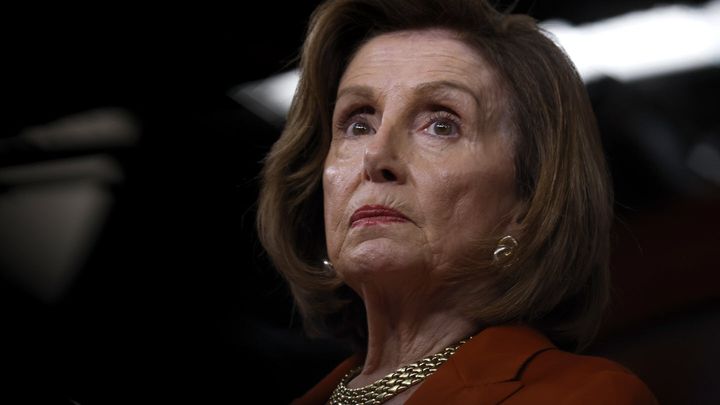This post was authored by journalist Lisa Newcomb.
Lawmakers and special interest groups that oppose marijuana legalization want courts to overturn the will of voters in three of the five states where citizens approved medical or recreational marijuana ballot measures in 2020.
Voters in Mississippi approved a medical marijuana initiative in November, while voters in Arizona, Montana and New Jersey approved recreational adult-use measures. South Dakotans approved both medicinal and recreational programs.
Polling shows an overwhelming majority of Americans support marijuana decriminalization, and most of the marijuana ballot measures that passed in 2020 had the support of more than 60% of voters. Still, opponents continue to push their prohibition agendas and have launched legal challenges in South Dakota, Mississippi and Montana, as well as legislative efforts to replace voter-approved initiatives in South Dakota and Montana.
“The reality is that our opponents understand that a majority of voters are on our side,” said Matthew Schweich, deputy director of state campaigns at the Marijuana Policy Project, a nonprofit that aims to end marijuana prohibition. “They can’t win at the ballot box, so they resort to legal theories and legislative efforts to defeat ideas that they can’t actually defeat in an election.”
The Single-Subject Rule
Twenty-six states and Washington, D.C. currently allow citizen initiatives or veto referendums, or both. Processes vary by state, but generally include signature requirements from a percentage of voters in a number of legislative districts in order for a measure to appear on the ballot. Opponents of these measures, regardless of subject matter, can and do attempt to prevent initiatives from appearing before voters.
Prior to the November election, the Nebraska Supreme Court ruled in favor of a local county sheriff who challenged a medical marijuana measure’s validity based on the state’s single-subject rule.
Of the 26 states that permit citizen initiatives, 16 have single-subject rule requirements.
State single-subject rules are intended to limit citizen initiatives from including a variety of policy changes in one measure (a marijuana legalization measure should not also advocate for paid family leave, for example), but opponents to initiatives across the ideological spectrum routinely use single-subject rules to try and get courts to throw out measures on technicalities before voters can weigh in on them and after they are approved by voters in an election.
In Nebraska, the state Supreme Court ruled in September 2020 that a medical marijuana initiative with sufficient signatures approved by the state’s secretary of state to appear on the November ballot amounted to “logrolling” because in addition to legalizing medical use of cannabis it also immunized growers and regulated the role of cannabis in several areas of public life. “If voters are to intelligently adopt a State policy with regard to medicinal cannabis use, they must first be allowed to decide that issue alone, unencumbered by other subjects,” the court ruled.
The court’s opinion prompted Nebraska State Senator Anna Wishart, a Democrat who was involved in the signature gathering phase of the initiative, to introduce a bill that would require the state’s attorney general to opine when initiatives are first proposed on whether they adhere to the single-subject rule, and to suggest changes when needed. That revised language would be presumed constitutional unless a lawsuit brought against it results in a Supreme Court ruling to the contrary.
Wishart also introduced a medical cannabis bill similar to the initiative that was kept off the ballot by the Court, and a constitutional amendment to the state’s law governing initiatives that would clarify that measures must contain “one general subject” that may include provisions with a “connection” to that general subject.
“The idea behind this came because of the loss we suffered last year with the medical cannabis ballot initiative,” Wishart told NET in January. “After going through a revisor of statutes, having a legal team look at the constitutionality, having the Secretary of State look at the constitutionality, we still found ourselves across the finish line and getting kicked off, even though we collected above 190,000 signatures—well above the constitutional requirement.”
Corrine Rivera Fowler, policy and legal advocacy director for the Ballot Initiative Strategy Center (BISC), a progressive nonprofit organization that supports ballot measure campaigns, agrees that clarity around single-subject rules would benefit the initiative process.
“BISC does not oppose single-subject rules necessarily,” Rivera Fowler told Sludge in an email. “Oftentimes, the single-subject rule is too strict and too narrow. If we are to have single-subject rules, then we need to allow for the flexibility of initiatives to be within a general subject, but to also include provisions that connect to that subject to ensure that the ballot measure is fully developed.”
Schweich said that while the purpose of the single-subject is to rein in initiative subject matter, it is being used as a tool to thwart citizen democracy.
“The single-subject rule is designed to ensure a ballot initiative does not encompass an excessively broad area of public policy,” Schweich told Sludge.
“The issue is that some courts at the state level are now really stretching the meaning of the single-subject rule,” he continued. Courts are “trying to interpret it in ways that essentially prevent advocates from using the ballot initiative process in a responsible manner.”
Initiative opponents in California and Colorado have also filed lawsuits citing the single-subject rule in asking courts to overturn measures that were green-lighted by voters in November.
A tobacco company filed suit in District Court against voter-approved Proposition EE in Colorado, which would increase taxes on cigarette and tobacco products and implement minimum prices for the same. A federal judge in December rejected a request from the same company to throw out the minimum price standards.
Ride-booking drivers in California alleged Proposition 22, a voter-approved measure backed by Uber and Lyft, is unconstitutional in part due to the single-subject rule. Plaintiffs refiled their case in a lower court this week after the California Supreme Court declined to hear it.
In South Dakota, Republican Governor Kristi Noem last month authorized state funding of a lawsuit challenging the legitimacy of the recreational marijuana amendment based on the single-subject rule. That measure was approved by 54.2% of voters. On Feb. 8, a Circuit Court Judge sided with the plaintiffs, declaring the measure, Amendment A, unconstitutional.
Judge Christina Klinger―appointed to her position by Noem in 2019―opined that Amendment A violated the single-subject rule and that it had “far-reaching effects on the basic nature of South Dakota’s governmental system” and was thus required to be submitted to voters through a constitutional convention process.
Following that ruling, South Dakota’s attorney general Jason Ravnsborg said his office will not appeal the Circuit Court decision, despite it being an attorney general’s duty to defend state laws when they are challenged in court. “It appears that all arguments that could have been made in this matter have, in fact, been made,” the attorney general’s office said in a statement.
Advocates of Amendment A vowed to move forward.
“The Attorney General has abdicated his responsibility to represent the people of South Dakota,” Melissa Mentele, executive director of New Approach South Dakota, a group that supported the measure pre-election and successfully filed as an intervenor in the court case, told the Argus Leader. “Simply put, he has decided to stop doing his job. The Attorney General’s decision is difficult to understand given that he previously argued in court that Amendment A is completely lawful.”
Meanwhile, Governor Noem announced she will work to delay implementation of the voter-approved medical cannabis initiative, Measure 26, by a year. Instead of a statewide medical marijuana legalization taking effect July 1, 2021 per the initiative, Noem wants to first set up an “interim committee” to address “wide-ranging questions that we still have,” delaying the implementation to July 1, 2022.
Lawmakers look to ‘repeal and replace’ the will of the voters
State lawmakers can also turn to the legislative process to undercut voter-approved measures, which can go hand-in-hand with legal efforts to overturn the will of voters.
In support of the Governor, South Dakota House Speaker Spencer Gosch, a Republican, introduced a bill last week to delay implementation of Measure 26 by a year and set up a study committee of 12 individuals, 10 of whom would be appointed by Noem.
“MPP is supporting in-state groups who are working very hard to defeat this legislation,” Schweich told Sludge. “Not only would House Bill 1100 cause severe delays, we believe it is intended to ultimately repeal and replace the medical marijuana law approved by voters. It is unfortunate that Governor Noem is spending so much time and energy waging a crusade against individual liberty and the will of the people.”
New Jerseyans passed recreational legalization Public Question 1 in November, with the program set to begin Jan. 1, but Gov. Phil Murphy, a Democrat who campaigned on legalizing cannabis, has refused to sign the legislation into law because it lacks clear civil penalties for those under 21 who are caught with marijuana.
Lawmakers have since introduced two separate “clean up” bills which some groups, including the ACLU of New Jersey, pointed out conflict with each other regarding consequences for minors caught with cannabis. Those two bills are currently making their way through state legislative committees.
The ACLU of New Jersey also noted that while voters wait for lawmakers to enact a voter-approved measure, citizens continue to be arrested for marijuana-related activities.
“Cannabis is still illegal in NJ today,” the group tweeted. “In fact, New Jerseyans continue to be arrested at alarming rates each day. Anyone, including young people, found in possession of less than 50 grams of cannabis can face: Up to six months of jail time [and] a fine up to $500.”
State lawmakers have delayed a vote on clean up bills despite fast-tracking at least one of them earlier in the year. Pending further delays, Gov. Murphy now has until Friday, Feb. 19 to sign or veto the marijuana legislation.



